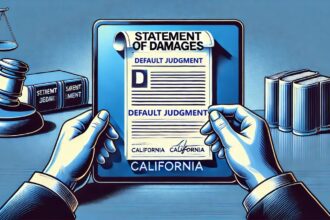Small Claims Court is a quick and cost-effective way to resolve disputes without hiring an attorney. Whether you need to recover an unpaid debt, settle a contract dispute, or get compensated for property damage, understanding the process can help you maximize your chances of success.
At Countrywide Process, we make the filing and service process easy for you. You can start your claim today with our self-guided Small Claims preparation tool and get your lawsuit served professionally with our nationwide process serving.
Who Can File a Small Claims Case?
Eligibility Requirements
- Individuals (must be 18 years or older or have a guardian file on their behalf).
- Businesses (sole proprietorships, LLCs, corporations).
- Landlords, contractors, or small business owners seeking to recover unpaid debts.
Small Claims Court Limits
- Individuals can sue for up to $12,500.
- Businesses and other entities are limited to $6,250 per claim.
- Plaintiffs can file only two cases over $2,500 per calendar year but may file unlimited claims under $2,500.
Step-by-Step Guide to Filing a Small Claims Case
Step 1 – Choose the Right Court (Venue)
Your lawsuit must be filed in the correct county court. You typically file in the county where:
- The defendant lives or does business.
- The incident occurred (e.g., car accident, property damage, contract breach).
- The contract was signed or performed.
Choosing the wrong venue may lead to dismissal.
Step 2 – Complete Required Forms
The primary document to file is:
- SC-100 (Plaintiff’s Claim and Order to Go to Small Claims Court) – This form includes your claim amount, the defendant’s information, and why they owe you money.
Additional forms may be required:
- SC-100A (Additional Plaintiffs or Defendants) – If multiple parties are involved.
- SC-103 (Fictitious Business Name Declaration) – If filing as a DBA.
Start filling out your Small Claims documents now with our self-guided tool.
Step 3 – Filing Fees Breakdown
| Claim Amount | Filing Fee |
| $1 – $1,500 | $30 |
| $1,500.01 – $5,000 | $50 |
| $5,000.01 – $12,500 | $75 |
| More than 12 filings in a year (for cases above $2,500) | $100 per case |
Can’t afford the filing fee? You may qualify for a fee waiver using form FW-001.
Once the forms are completed, they can be filed:
- In person at the courthouse.
- By mail (some courts allow mail filing).
- Online (eFiling) – Available in some counties.
Need assistance? We can help with the filing and serving process.
Step 4 – Serve the Defendant
After filing, you must notify the defendant by serving them with court papers. This must be done at least 15 days before the court date (20 days if out-of-county).
Methods of Service:
- Personal Service – A process server, sheriff, or any adult (not involved in the case) delivers documents directly to the defendant.
- Substituted Service – If the defendant is unavailable, documents can be left with someone else at their home or work and followed by a mailed copy.
- Certified Mail (by the court clerk, if allowed).
Proof of Service Required: The person who serves the defendant must complete SC-104 (Proof of Service Form) and file it with the court before your hearing.Need professional service of process? Let our experienced process servers handle it for you! Get started here.
Step 5 – Prepare for Your Court Hearing
What to Bring to Court:
- Contracts, invoices, receipts, or estimates proving your claim.
- Photos, videos, emails, or texts related to the dispute.
- Witnesses (they can testify in person or provide signed statements).
At the hearing, the judge will listen to both sides and review the evidence before making a decision.
Step 6 – Judgment and Collection
Winning Your Case
- The court issues a judgment ordering the defendant to pay you.
- If the defendant does not pay voluntarily, you may need to enforce the judgment through:
- Wage Garnishments
- Bank Levies
- Property Liens
What If You Lose?
- Only the defendant can appeal the case within 30 days of the judgment.
- If an appeal is granted, a new trial is scheduled before a different judge.
Get Started Today with Countrywide Process
Filing a Small Claims lawsuit doesn’t have to be difficult! At Countrywide Process, we make the process simple:
- Prepare Your Small Claims Documents – Use our self-guided form preparation tool.
- File Your Claim with the Court – We can assist with eFiling where available.
- Serve the Defendant Properly – Our professional process servers ensure timely and legally valid service.
- Need help with filing or service? Get started today.
Frequently Asked Questions (FAQs)
Can I Have a Lawyer Represent Me in Small Claims Court?
No, attorneys cannot represent parties in Small Claims Court, except in appeals.
What If the Defendant Ignores the Judgment?
If the defendant does not pay, you may need to enforce the judgment using wage garnishment or bank levies.
Can I Settle Before the Court Date?
Yes, parties can settle before trial. If a settlement is reached, inform the court immediately.
Is Small Claims Court Worth It?
If your claim is under $12,500 and you have solid evidence, Small Claims Court is a fast and cost-effective way to resolve disputes.
Final Thoughts
Filing a Small Claims case in California is a straightforward process when you follow the right steps. By understanding venue selection, filing fees, service of process, and court procedures, plaintiffs can increase their chances of winning their case and collecting their judgment.
- Don’t wait! Start your claim today with Countrywide Process.
Excerpt:
Filing a Small Claims lawsuit in California is a structured process designed for individuals and businesses to recover money efficiently. This guide covers eligibility, filing fees, service of process, court procedures, and enforcing judgments. Get started today with Countrywide Process for a fast and seamless filing experience.






